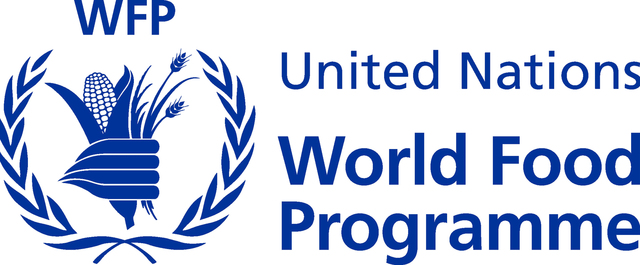Wrapped in a blue-and-tan headscarf and matching gown, 50-year-old Fordos waits patiently as workers scoop bowlfuls of rice and yellow split peas into large, faded plastic bags, before collecting large cans of fortified vegetable oil. The World Food Programme (WFP) rations, distributed one recent morning in the Central African town of Birao, amount to a month’s worth of food for her family of five.
The WFP assistance is the first they have received since crossing the border into this remote northeastern slice of Central African Republic, or CAR. It’s also the only food they can count on, going forward.
“I need this food for my grandchildren,” says Fordos, whose family fled their war-torn village in Sudan’s South Darfur region earlier this year with just a few blankets and clothes. “And to help me settle here.”
Fordos – whose last name is being withheld for her protection – counts among tens of thousands of people pouring into CAR from neighbouring Sudan over the past year. Of the more than 43,000 Sudanese refugees and Central African returnees seeking shelter here, 90 percent have crossed the border since 2024. Many have settled in Birao.
They arrive in a country grappling with its own legacy of hunger, violence and displacement. Decades of armed conflict and other unrest in CAR have uprooted millions. One in three Central Africans is acutely hungry. Four in 10 children are stunted from malnutrition.
“The Central African Republic has opened its doors to Sudanese refugees,” says WFP CAR Country Director Rasmus Egendal. “WFP is struggling to sustain lifesaving support for them and vulnerable locals. We urgently need donors to match CAR’s generosity.”
Many of the newcomers say they have been welcomed by Birao’s residents. Sudanese children are enrolled in local schools, and some are learning French, one of the country’s official languages.
“We speak the same language as the host community, and have the same traditions,” says Sudanese entrepreneur Tarik, who heads the local Sudanese traders’ association in Birao. Central African and Sudanese communities have strong cross-border ties and traditions, he says, adding, “it’s a coexistence that works well.”
A new home
On the outskirts of Birao, a sprawling neighborhood of Sudanese exiles has sprung up called Korsi. Dirt paths weave through a maze of white tents and rickety bamboo stalls selling food and other goods. Colourful scarves and gowns hang out to dry. The vast majority of the newcomers are women and children.
“I no longer hear the shooting,” says Kadija, who arrived in Birao from the Sudanese city of Nyala two years ago, shortly after Sudan’s war erupted. “For us, it’s tranquility.”
Like many refugees here, Kadija longs to eventually return home. For now, she has started a small business, selling handicrafts she’s learnt to make with WFP support. As children crowd around her in their small home, she shows a visitor how she weaves colourful baskets with recycled material.
“My crafts help me to survive,” says Kadija, who has nine children and grandchildren with her in Birao. “WFP assistance supplements my income and allows me to feed my children.”
WFP also supports refugees like Kadija and returning Central Africans with specialized nutritional supplements for malnourished women and small children, and school meals in local schools, which have welcomed in Sudanese children.
“WFP’s assistance not only gives people the food they need to survive today, but also the hope of getting back on their feet in the longer term,” WFP’s Egendal says.
Central African authorities are also giving refugees small plots of land to cultivate, with WFP and our United Nations partner, the Food and Agricultural Organization, supplying seeds and farming tools.
“I cleared the land and cut down trees with machetes,” says Halima, 48, who wants to grow tomatoes, okra, lettuce and onions on her parcel. Like Kadija, she hails from Nyala, the capital of Sudan’s South Darfur state. She fled with nine children and grandchildren last year, as bombs and missile attacks rained down on the city. Her husband died shortly after the family arrived in Birao.
“Without the land, I would stay here, arms crossed, not knowing what to do,” says Halima, who carries the responsibility for feeding her large family. Several of her nine children have left Birao in search of work. The others depend entirely on WFP’s assistance to get by.
‘There are many difficulties,” Halima says.
Grandmother Fordos also hopes for a plot of land. She once grew peanuts and millet in her Sudanese village of Abori, until war arrived there, killing her husband and daughter. She and several grandchildren made the two-day the trek to CAR by foot and car.
Now, they must start over again.
“I would like to resume farming,” Fordos says, “and I hope my grandchildren can go to school in town.”
WFP’s Sudanese refugee response in CAR is made possible thanks to the generous support of the United States of America.
Distributed by APO Group on behalf of World Food Programme (WFP).



